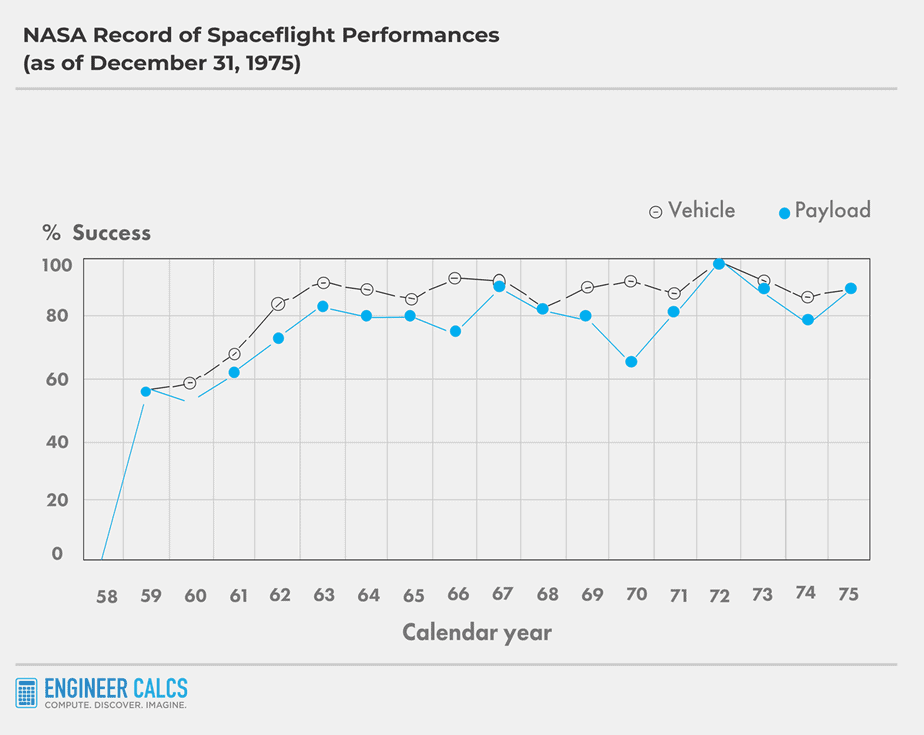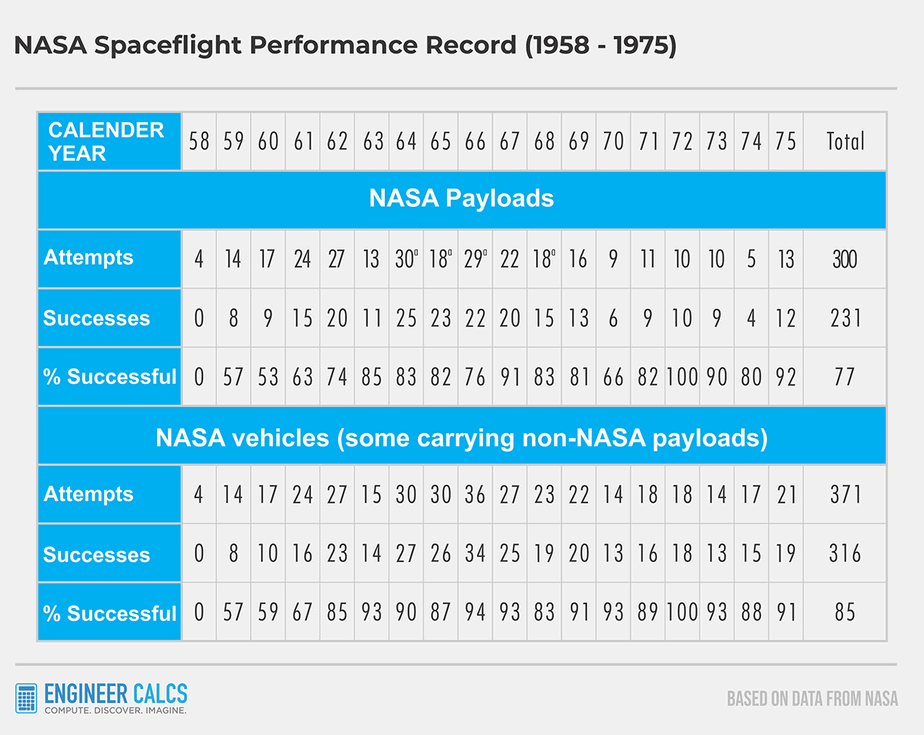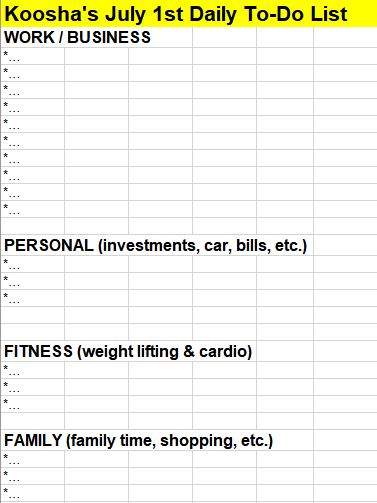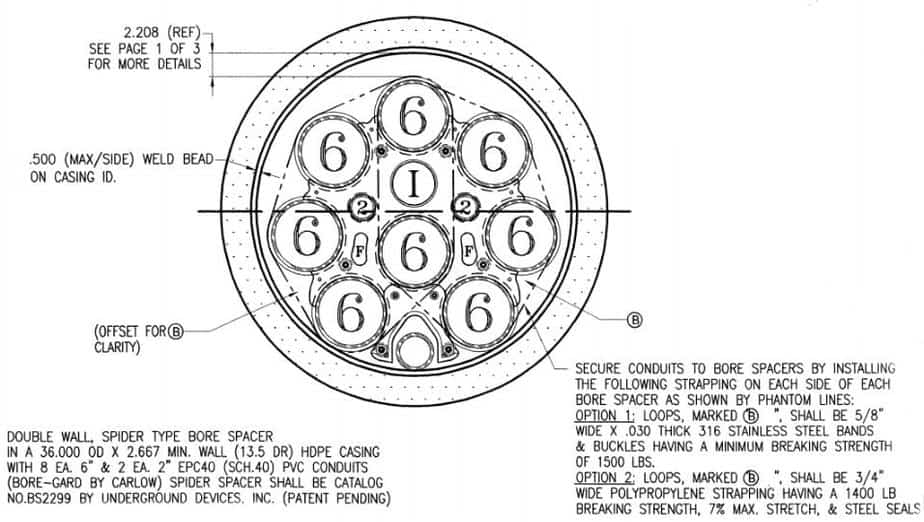The top engineering skills can truly enhance our everyday lives, and as an engineer myself, I can attest to this.
So let’s explore 7 top engineering skills that can transform your daily life.
#1 Become super detail-oriented
In the Engineering World
In engineering, even tiny mistakes can lead to epic disasters. For example, when I design around existing underground 12,470-volt cables, I know that any slip-up could result in explosions, wrecked equipment, or injuries. Unlike a surgeon, an engineer’s blunder can send shockwaves throughout an entire community.
Need some proof? Check out this mind-blowing NASA story.
NASA has had its fair share of wins and losses, but the infamous crash of a $125 million Mars orbiter in 1999 was caused by a simple mix-up between two engineering teams—one using metric units, the other U.S. This teeny-tiny mistake doomed the whole mission.
In engineering, using the wrong unit is like kryptonite. Not even safety factors can save you. After all, NASA was aiming to orbit Mars, not become a fireball in the Martian atmosphere.


In the Real World
I’m not suggesting you become obsessed, but rather be observant and double-check things. For instance, take the time to review your credit card bills for errors before paying them off. I’ve caught countless mistakes in my bills, from miscalculations to unrecognizable transactions.
And remember, computers aren’t perfect. They can spit out wonky results thanks to human errors and glitchy software. So always give computer outputs a reality check to ensure everything’s on point.
#2 Plan and organize your life like a pro
In the Engineering World
Kickstarting an engineering design project demands crazy-good planning, like
- Grasping a client’s vision
- Collecting project intel
- Sketching a preliminary design
- Reviewing the design with the client
- Hunting down missing info for the full design
Once the design dance begins, nonstop coordination is key. Take bridge design—first, environmental engineers suss out the project site to weigh the impact of a new bridge. Then, geotechnical engineers dig into soil analysis, which guides structural engineers in designing the bridge foundation. And the relay race goes on!
Cutting corners is a recipe for disaster. It leads to delays, skyrocketing budgets, and screw-ups.
In the Real World
Master your day by crafting daily to-do lists.

I create my daily to-do list the night before, then tweak it as new tasks emerge. I also map out monthly and yearly to-do lists for my grand ambitions, keeping me laser-focused.
For example, if I want to invest by the end of 2022, I need a game plan. That means saving money and networking to find sweet deals.
And don’t forget to pepper in fitness, family, and spiritual goals into your to-do lists. It’ll give your life that extra zing and structure.
#3 Embrace a healthy level of paranoia
In the Engineering World
When I tackle large, complex projects, I morph into a super-vigilant version of myself. Triple-checking calculations and designs becomes second nature, as I’m well aware of the high liability and scrutiny involved.
A healthy dose of paranoia keeps engineers on their toes, ensuring they deliver excellent work every time. In fact, every 10x engineer I know has a touch of paranoia, whether obvious or subtle.
In the real world
In this fast-paced world, a touch of paranoia can be your best friend. It encourages you to slow down and make wiser decisions. Let me paint you a picture with my short-sale home purchase experience during the 2008 Great Recession.
I came across an incredible deal for a short-sale home and, as any smart buyer would, I had it inspected. The inspector gave it the all-clear, but my gut told me something was off with the kitchen sheetrock. So, I called up my handyman pal to have a look, and voila, we found mold everywhere!
I still bought the home because the deal was unbeatable. But without that nagging suspicion, I could’ve been in a world of hurt. So, stay alert!
I’ve also found paranoia to be invaluable in situations like:
- Contractor inspections: Don’t blindly take their word for it. Check their work yourself for slip-ups.
- Cash exchange: Count the money you’re given at a grocery store. Cashiers make mistakes.
- Sent emails: If someone claims they never got your email, verify it yourself by checking your outbox.
- Financing purchases: Crunch the numbers yourself and ensure they make sense.
- Safety concerns: If you think you damaged your barbecue gas tank when you dropped it, don’t risk using it. Replace it to avoid a potential explosion.
Paranoia can also boost your confidence, as it helps prevent others from taking advantage of you.
#4 Stay curious
In the Engineering World
Engineers are naturally inquisitive, which sparks creativity and innovation. Just look at the awe-inspiring skyscrapers, smartphones, video games, and countless other inventions!
When I run engineering computer studies, I never take the results at face value. For instance, with a high voltage cable ampacity study, I always maintain a healthy curiosity about the outcome.

A quick background: every cable has a rating indicating how much current it can carry. However, this rating doesn’t factor in many real-world variables, such as:
- Proximity to other cables
- Type of conduit
- Soil type and temperature around the cable
- Load the cable needs to carry
Each of these variables affects cable temperature, which in turn affects the current it can carry.
So, with any software outputs, I check to see if the results make sense. I call it a ‘reality check.’ For instance, imagine two case studies. One where the cable is inside a PVC conduit, and another where the cable is inside a metallic conduit.
Now, does the software show the cable’s current increases in the metallic versus the PVC conduit? If not, then there’s a problem as metal is a great conductor. A metallic conduit will transfer heat better than a PVC conduit. Because PVC is a poor conductor given it’s made from lightweight plastic.
In the real world
Say your landscaper tells you it’ll cost $5,000 to add turf to your backyard. In this instance, you shouldn’t blindly accept the quote. Instead, ask your landscaper the following questions:
- What’s the cost and quality of the turf?
- What’s the square footage of the area to be turfed?
- Does the cost include grading the existing area?
- What are the charges for disposing of waste materials?
- Is the $5,000 quote a fixed cost?
- What’s your experience with similar backyard designs?
These questions will lead you to a nice backyard without burning a hole in your wallet.
#5 Always remain relentless and never quit
In the Engineering World
Engineers are stubborn and I can’t sugarcoat it. We think solutions exist for every problem. And when a client says “jump,” we ask “how high?” Of course, as long as problems stay within the laws of physics.
From my experience, if you keep scratching your head long enough, you’ll eventually crack the code. The key is to not throw in the towel too soon and to keep your creative juices flowing.
Picture this: a metallic tube carrying 250-plus people, soaring over vast oceans. Now imagine if the Wright Brothers had called it quits after their first crash. We might still be embarking on month-long journeys from Europe to New York by ship. Insane, huh?!

In the Real World
More often than not, we’re just a stone’s throw away from the finish line when we give up. If most people were aware of this, they’d never quit. Here are some examples of quitting too early:
- You dropped out of college with just one quarter left before graduation.
- You abandoned your diet a mere two weeks before it became a habit.
- After ten rejections, job hunting seemed too tough, so you quit. Meanwhile, your colleague landed a new job on their eleventh attempt.
- You ended your marriage after six months without addressing issues with your spouse.
This list could go on. The point is, before you throw in the towel, take a good look at the situation. Don’t quit just because it’s hard work. Almost everything worthwhile in life demands effort. And just like in engineering, most life problems have solutions.
#6 Be rational and don’t let emotions rule you
In the Engineering World
Engineers are known for their logical thinking, which shouldn’t come as a surprise considering our reliance on math and science.
For instance, if a calculation reveals a cable can only handle 200 amps, then that’s the limit. There’s no magic trick to boost the cable’s capacity. Overloading the cable would cause it to overheat and potentially ignite a fire.
Such failures only reinforce an engineer’s dependence on logic. Engineers rarely let their emotions sway their decisions because the consequences could be disastrous.
Having said that, emotions can contribute to impressive designs, but only after the rigorous engineering process has been completed. Aerospace engineers don’t design cube-shaped planes simply because they might look cool. Instead, they first employ physics to determine the most aerodynamic design, which is far from a cube-shaped plane. Only after this step do they incorporate aesthetic elements.
So, are all emotions bad?
Nope. Some emotions can be helpful. Paranoia, for example, makes you more cautious, resulting in better designs.
Emotions do have their place, but most of the time, they should take a backseat to rational thinking. After all, rationality is what allows you to safely fly from New York to France. Trust me, you don’t want a bunch of emotionally distraught divorcees designing your airplane.

In the real world
It’s no secret that irrational thinking causes a whole lot of problems. If you want to make smarter choices, start thinking more rationally. Here are a few situations where rationality is crucial:
- Buying a home: either you can afford it or you can’t. No matter how stunning the house is, the mortgage payments won’t shrink just because it’s your dream home.
- Eating healthily after a heart attack: physical looks can be deceiving. If your doctor tells you to avoid certain foods, obey them. Your heart couldn’t care less whether a Twinkie tastes better than broccoli.
- Abusive relationship: if you’re in one, get out. It doesn’t matter how much you think the other person loves you. Love shouldn’t hurt.
But, there are times when blending rational thinking with emotions makes sense. For instance, helping your parents when they need money. Financially speaking, it’s not rational. But to me, at least, the benefits are priceless. You’re supporting the people who gave you life and raised you.
#7 Unleash your creativity
In the Engineering World
As we discovered in #6, rational thinking is a must for engineers. But creativity is just as vital. Creativity sparks the outside-the-box solutions engineers are famous for.
I liken a creative mind to a Swiss Army Knife. You can tackle and solve any problem. To illustrate, let’s revisit the airplane example. Many don’t know this, but birds inspired airplanes. According to Airbus,
Airbus’ “Bird of Prey” conceptual airliner is inspired by the eagle. The theoretical design is a hybrid-electric, turbo-propeller aircraft for regional air transportation, which mimics the eagle’s wing and tail structure, and features individually controlled feathers that provide active flight control.
So, we got creative and designed planes to fulfill our dream of flying. This blend of creativity and rational thinking cultivates superstar engineers.
In the real world
You’re gearing up to throw a party and want to bake your favorite cake recipe. But mere hours before your party, you realize there’s a big problem. You’re missing several key ingredients.
You don’t panic. Instead, you use your creativity to improvise. You mix and mash various ingredients you find in your fridge. In the end, none of your guests can tell you whipped up an amazing cake recipe from scratch.
The point is, always be prepared to flex your creative muscles. In return, no problem will ever seem insurmountable.
The top engineering skills for everyday life wrap up
Hollywood stereotypes may depict engineers as dull and boring, but the reality is quite different. In fact, there’s a ton to learn from engineers.
I believe that if a set of skills can send rockets into space, they can definitely improve your personal life. So do your best to adopt as many of these engineering skills as you can.
Which of these 7 top engineering skills do you think would benefit your life the most? Which engineering skills do you think best translate to everyday life?
